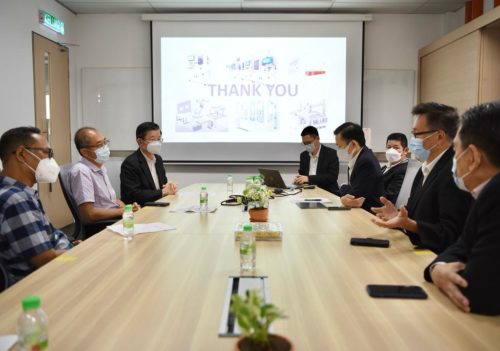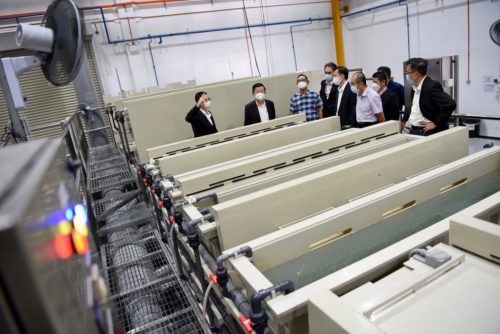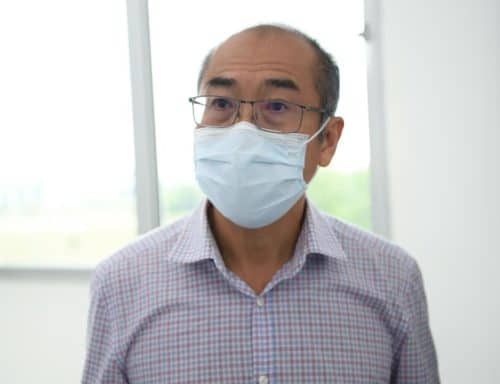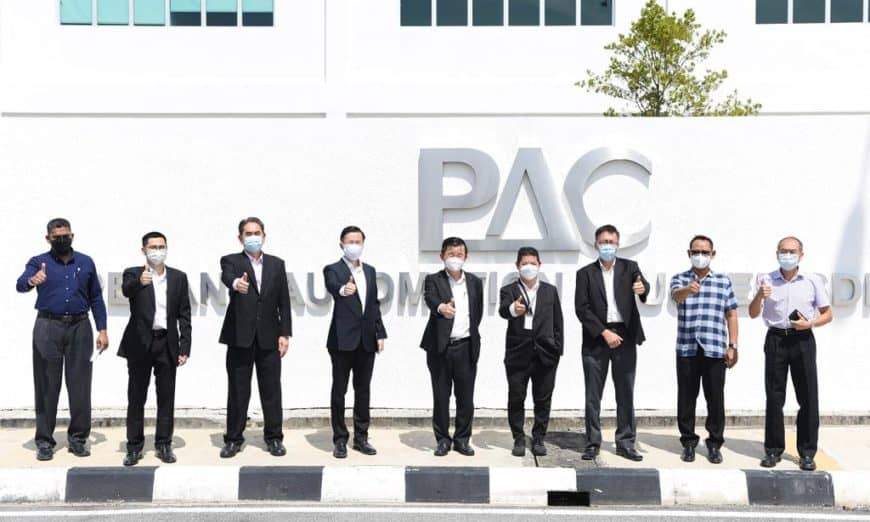PENANG’s industrialisation cannot and should not be all about multinational companies because the involvement of small medium enterprises (SMEs) is deemed crucial as well to elevate the success of the said area, Chief Minister Chow Kon Yeow said.
He said this after visiting the Penang Automation Cluster Sdn Bhd (PAC), a one-stop metal component supply chain hub which is a joint venture by ViTrox, Pentamaster Corporation Bhd and Walta Engineering Bhd in Batu Kawan.
It was incorporated in 2016.
“We are called the Silicon Valley of the East, and the impression we get is always focused on MNCs.
“But when a particular MNC comes to a location to invest, they do a lot of due diligent before deciding to set up their factory here. They look at many factors, and one particular one which so often we are all concerned about is whether we have a complete local supply chain, which can support their production and operation.
“I believe that is when PAC’s existence plays a vital role as they bring in suppliers, which are SMEs, nurture them from the backyard industry all the way to being competitive in order to have the technology to support large local companies and MNCs.
“We will be celebrating 50 years of industrialisation in Penang next year, and it should not be all about MNCs because the SMEs should have their share of bite to elevate the core contributing industries in Penang.

“It is the whole ecosystem from the very small one-man show, one-machine operation to the big companies,” Chow said during a brief press conference at PAC in Batu Kawan today.
Meanwhile, Datuk Seri Lee Kah Choon, who is the special investment adviser to Chow, said PAC currently has 17 lots within their compound, and what they do is, they rent those lots out to interested SMEs to manufacture high-end precision work to support LLCs and MNCs.
“When SMEs come here, they start small. Then, they slowly learn the process and when they start making money, they will then have the potential to grow bigger and contribute vastly for the industry.
“For your information, PAC has many functions. One of it would be to upgrade and upskill SMEs to bring them out from the backyard industry.
“Industry is very difficult if you don’t take care of the environment. With PAC’s operations here, that issue is properly taken care of,” Lee told Buletin Mutiara.
Separately, Chow said Penang’s industrial and manufacturing sectors have progressed very well, especially in terms of volume, expertise and the types of products that the state was able to spearhead in.

True to its reputation as the Silicon Valley of the East, Penang is the most important manufacturing base for electrical and electronic (E&E) products within Malaysia, and is among the most vibrant hubs globally, with an estimated 5% of global semiconductor exports.
In 2020, Penang’s exports surpassed the RM300 billion mark to reach a record high of RM310 billion (US$77 billion), out of which, 82% were contributed by E&E and professional, scientific and controlling instruments (including medical devices).
Notably, Penang generated RM110 billion (US$27 billion) of trade surplus in 2020, representing 60% of Malaysia’s total.
At the press conference, it was also learnt that PAC has an expansion plan of setting up Phase Two, but due to several unavoidable challenges, for example, limitations in terms of certain components, the plan is currently put on hold.
“I understand that when this new expansion plan materialises later, it will be pivotal for PAC to complete the supply chain so that this operation can support other industries as well in Penang,” Chow added.

He was also happy to hear good stories about graduates from Penang Skills Development Centre (PSDC) and other vocational schools, who have all taken up their responsibilities to train students enrolled in engineering courses.
“If it is all about MNCs alone, it would not be a complete success. We want local companies and SMEs to grow.
“We must continue to train human talents and resources to support our industrialisation,” Chow added.
Story by Kevin Vimal
Pix by Muhamad Amir Irsyad Omar
Video by Ahmad Adil Muhamad

